Maya Angelou among inspiring women on North Carolina list along with other civil rights activists
They've come from small towns on the coast, the mountains and the Piedmont, but their impact has been felt well beyond. From the White House to the big screen, from Raleigh to radios and bookshelves across the nation — these women have etched their names and presence in North Carolina's memory.
This year, America marks the 100th anniversary of the 19th Amendment which legally gave women the right to vote in the U.S., and to commemorate the occasion, the USA TODAY Network is naming 10 American women from all 50 states, plus the District of Columbia, to recognize their contributions to their respective states and to the county as “Women of the Century.”
The women, all of whom lived in the years since the passage of the 19th Amendment in 1920, were expected to have a documented track record showing outstanding achievement in areas such as arts and literature, business, civil rights, education, entertainment, law, media, nonprofits and philanthropy, politics, science and medicine or sports.
Are you registered to vote? Take the first step to making sure your vote counts.
The list of women who have made an impact on North Carolina is so very much longer than 10 names, figures such Lillian Exum Clement, the first woman elected to the North Carolina General Assembly and the first woman to serve in any state legislature in the Southern United States.
Or Myrtle Driver Johnson, a Cherokee Beloved Woman and one of the leading forces in revitalizing the Cherokee language. Elizabeth Dole, who has a lifetime of public service in government and as president of the American Red Cross.
There's also Gertrude Weil, who led the fight to get the 19th Amendment ratified in North Carolina and a founder of the League of Women Voters of North Carolina. And Jaki Shelton Green, who is North Carolina’s ninth poet laureate.
These women, and the women on this list, come from various generations and across the spectrum of categories, with a pioneering spirit that advanced the cause of women, civil rights, and North Carolina.
Who is your Woman of the Century? Did we miss a woman you think should be on our list? We’d like to hear from you.
Maya Angelou
Award-winning poet and author, civil rights activist
(1928-2014)
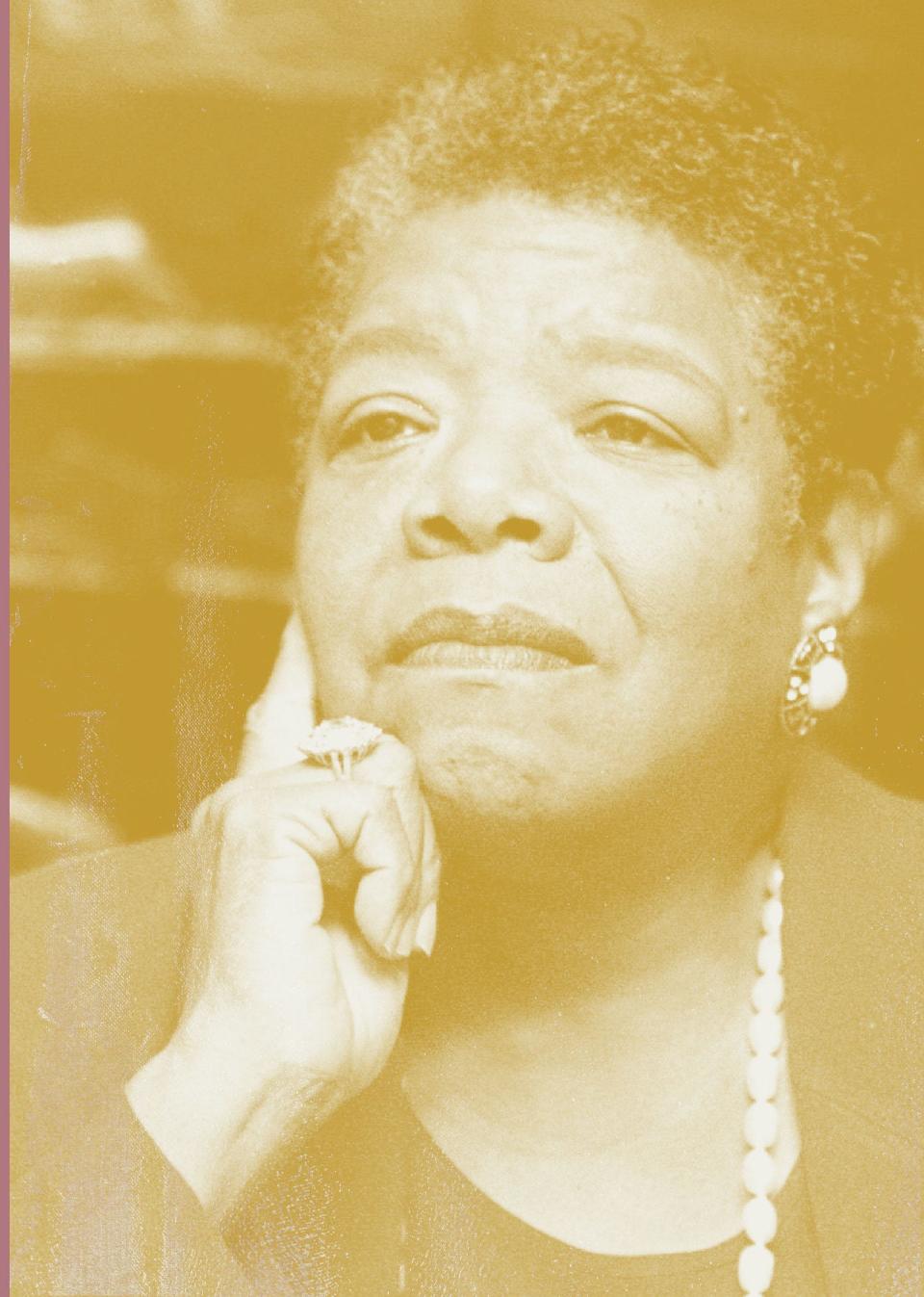
Hers was a remarkable life, linking worlds of civil rights, poetry, acting and teaching.
Maya Angelou, a revered North Carolina poet laureate, author and civil rights champion who made an impact on American culture and society for more than 50 years, was born Marguerite Johnson in St. Louis.
As a child, she earned the nickname Maya; Angelou was her first husband’s family name.
“Angelou rose from poverty, segregation and violence to become a force on stage, screen and the printed page,” the Associated Press has written.
She is perhaps best known for the initial installment of her multipart autobiography, “I Know Why the Caged Bird Sings” (1970), which tells the story of a Black girl growing up in a society founded on white supremacy during the Great Depression.
Angelou's work empowered the African American community and exposed her readers to its experiences. In particular, she encouraged Black women and girls to embrace their power and tell their truths.
Angelou wrote three books of essays and several books of poetry; she won numerous awards for her contributions to the arts and civil rights. Among them, she was awarded the N.C. Award in Literature in 1987, the National Medal of Arts in 2000 and the Presidential Medal of Freedom in 2010. She won three Grammy Awards for best spoken word albums and was nominated in 1972 for the Pulitzer Prize for her first book of poetry.
She made her home in Winston-Salem after accepting a lifetime teaching position at Wake Forest University as the first recipient of the Reynolds Professor of American Studies.
Susie Marshall Sharp
First female justice of the North Carolina Supreme Court
(1907-1996)
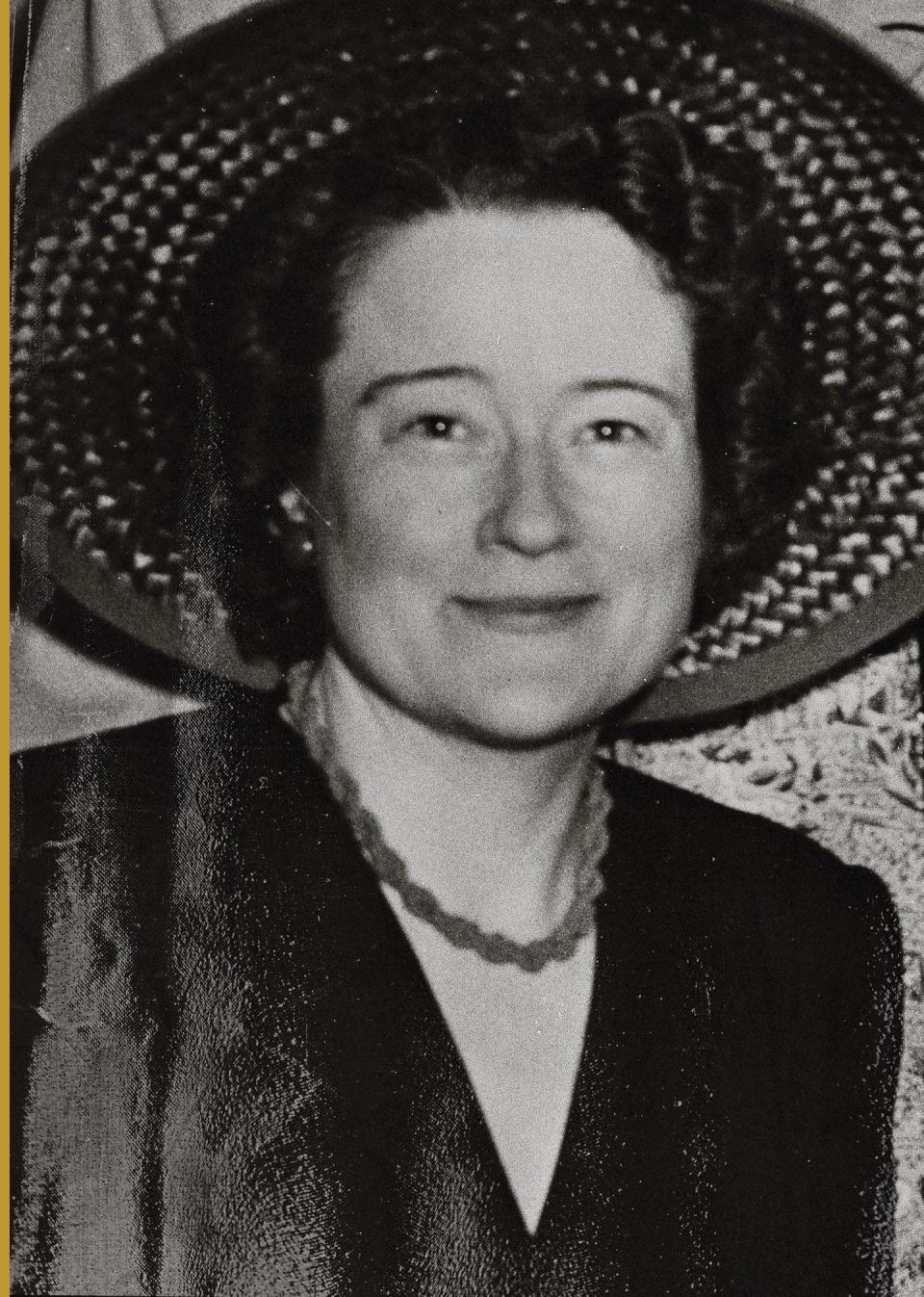
Susie Marshall Sharp was the first woman to be chosen to the North Carolina Supreme Court and the first to be elected as chief justice of the court. She also has the distinction of being the first woman in the country to be elected chief justice of a state supreme court.
Born in Rocky Mount, Sharp was class salutatorian when she graduated high school in 1924. She attended the North Carolina College for Women (now the University of North Carolina Greensboro), and then to the University of North Carolina School of Law. She was the only woman in her class there.
In the summer of 1949, Gov. Kerr Scott appointed Sharp to the N.C. Superior Court bench. She was the first female judge in Tar Heel State history. Thirteen years later, Gov. Terry Sanford named her to the N.C. Supreme Court. She was elected twice to the court, but was forced by law to retire as an associate justice in 1974. She then turned around and ran that fall for chief justice; she won in a landslide and served 1975-79.
During her tenure, Sharp advocated for a constitutional amendment requiring that all judges be lawyers. The amendment passed in 1980.
Sharp received several honorary degrees. In 1952, she was recognized by Ladies Home Journal as one of 13 outstanding women in public offices in the country. In 1975, she was honored in Time Magazine’s 12 Women of the Year.
Pauli Murray
Women’s rights and civil rights activist
(1910-1985)
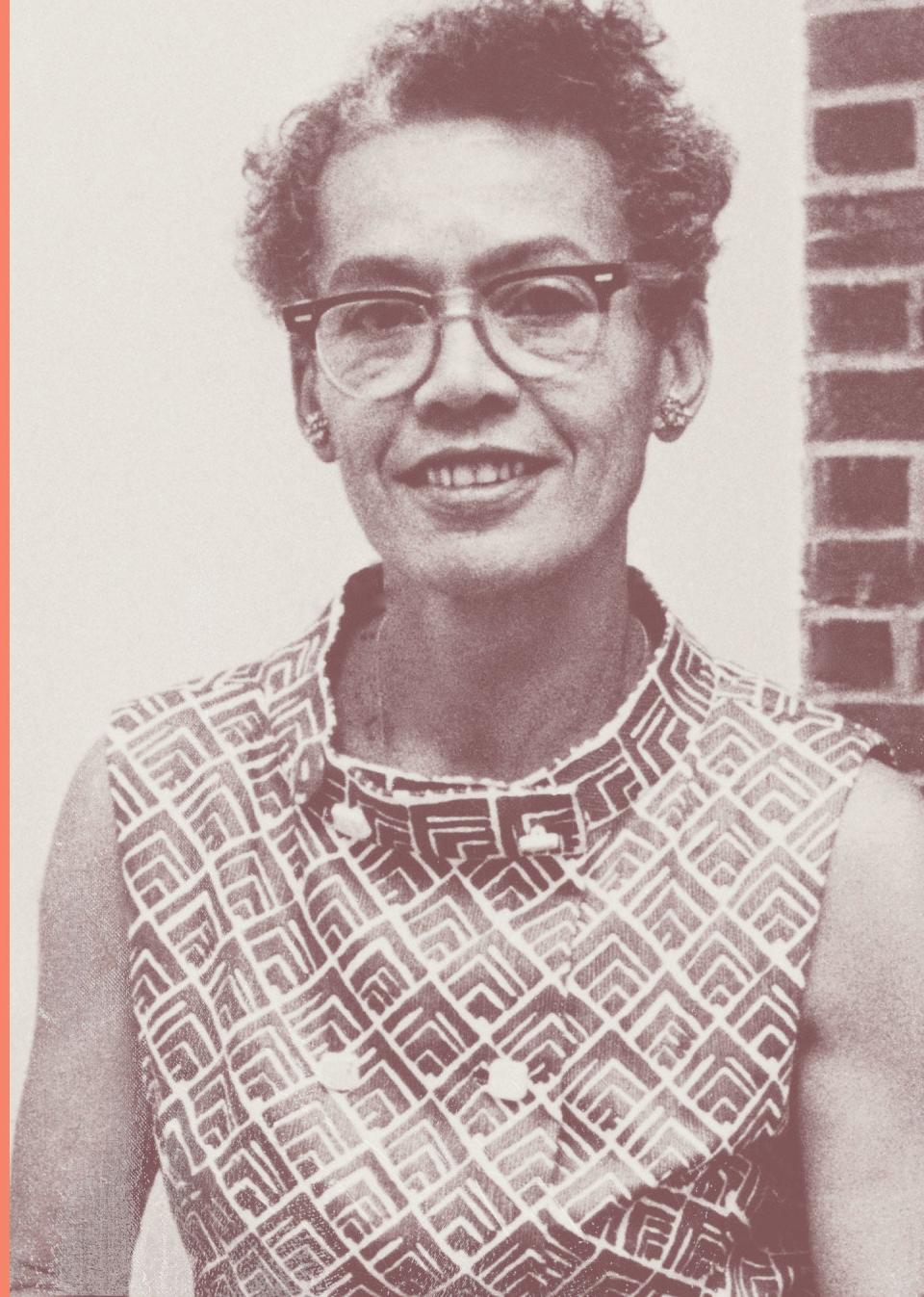
Anna Pauline "Pauli" Murray was an American civil rights activist, lawyer, Episcopal priest and author.
Murray's mother died when she was 3, and her father sent her shortly afterward to live with her aunt, at the home of her maternal grandparents in Durham.
After attending Hunter College in New York, she began a nationally publicized campaign to begin graduate studies at the all-white University of North Carolina with the support of the NAACP, an effort that eventually went nowhere.
In 1940 in Virginia, Murray defied the laws of segregation and was thrown in jail for refusing to move to the back of a public bus.
In 1941, Murray became the only woman enrolled at the Howard University Law School, a historically Black institution. After earning her law degree, Murray wrote, “States’ Laws on Race and Color,” about American segregation. Thurgood Marshall, then-executive director for the NAACP, called it “the bible” of Brown v. Board of Education.
In the early 1960s, Murray worked closely with Philip Randolph, Bayard Rustin and Martin Luther King Jr., but was critical of the way that men dominated the leadership of these civil rights organizations. In 1965, Murray told feminist Betty Friedan that the time had come to organize an NAACP for women, and they launched the National Organization for Women.
In 1977, Murray became the first Black woman to be vested as an Episcopal priest. She administered her first Eucharist at a church in North Carolina where more than a century earlier, a priest had baptized her infant grandmother, who was born a slave.
Murray died of cancer in Pittsburgh on July 1, 1985. She has been sainted by the Episcopal Church. A residential college at Yale was named in her honor and her childhood home was designated a National Historic Landmark by the Department of the Interior.
Loretta Lynch
Former U.S. Attorney General
(1959- )
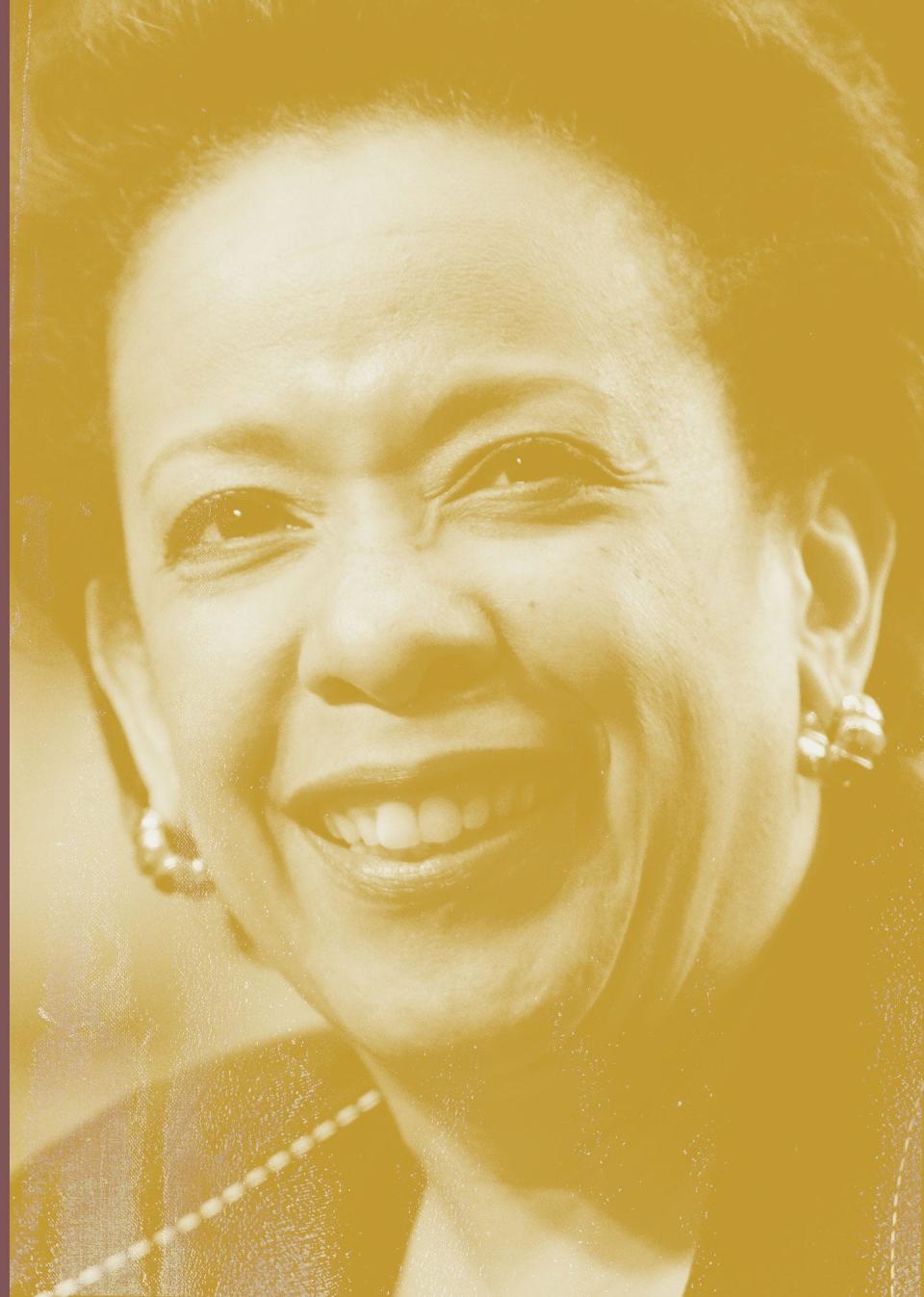
A native of Greensboro, Loretta Lynch has had a distinguished legal and public service career, including serving as attorney general of the United States from 2015 to 2017, a position to which she was appointed by President Barack Obama.
As attorney general, Lynch's responsibilities were vast, including leadership of over 100,000 employees from U.S. attorneys to major investigative agencies, including FBI, Drug Enforcement Administration and Bureau of Alcohol, Tobacco, Firearms and Explosives; U.S. Marshals Service; Bureau of Prisons; National Security Division; and Office of the Solicitor General.
Earlier in her career, Lynch was assistant U.S. attorney in the U.S. Attorney's Office for the Eastern District of New York. Her responsibilities increased throughout the 1990s until President Bill Clinton appointed her U.S. Attorney for the Eastern District in 1999.
Lynch left the public sector in 2002, when she spent time on white-collar criminal defense, commercial litigation and corporate compliance. She served on the Federal Reserve Bank of New York's board. She also served as special counsel to the international tribunal on the Rwandan genocide.
In 2010, Lynch returned to the Eastern District of New York as U.S. Attorney, overseeing terrorism, corruption and fraud cases.
She also supervised the investigations of global banks’ involvement in the mortgage securities market in connection with the financial crisis.
Lynch earned her J.D. and B.A. in American literature from Harvard University.
Beverly Perdue
North Carolina’s only female governor
(1947- )
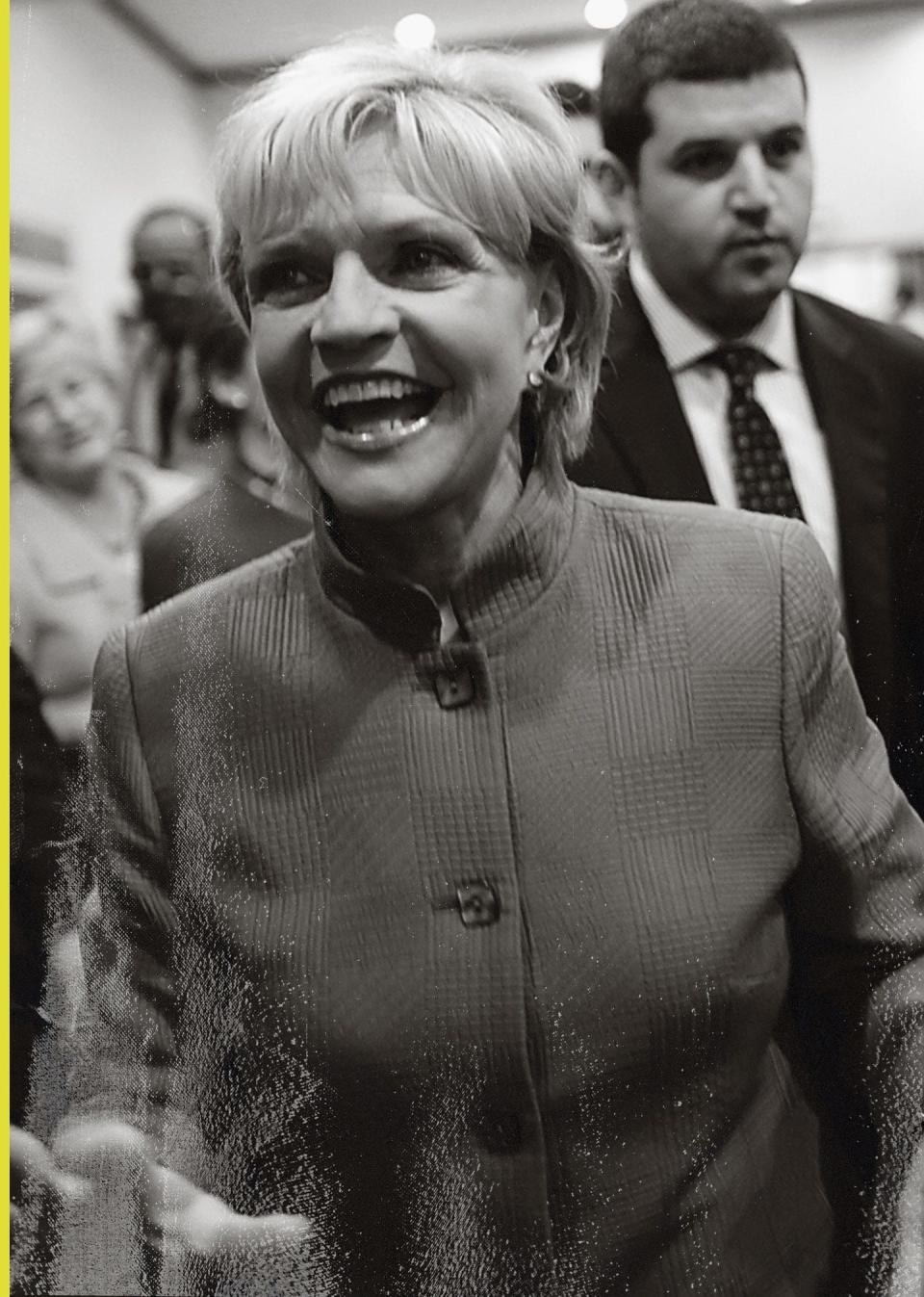
Beverly Perdue is the only woman to be elected governor of North Carolina, and also holds the distinction of being the state’s first female lieutenant governor.
Perdue, a native of Virginia, worked as a public school teacher and in the geriatric services field, before being elected to the North Carolina Legislature in 1987. A Democrat, Perdue served one term in the House of Representatives and an additional six terms in the state Senate.
During her tenure as a state legislator, Perdue played an integral role in the passage of several landmark initiatives, including raising North Carolina teacher salaries and starting a program to provide low-or-no cost health care coverage for eligible children. She was elected as North Carolina’s lieutenant governor in 2000.
In the 2008 general election, Perdue was elected as the state's 73rd governor and its first female governor, serving one four-year term. Perdue decided not to run for re-election in the 2012 general election.
Ella Baker
Civil rights icon
(1903-1986)
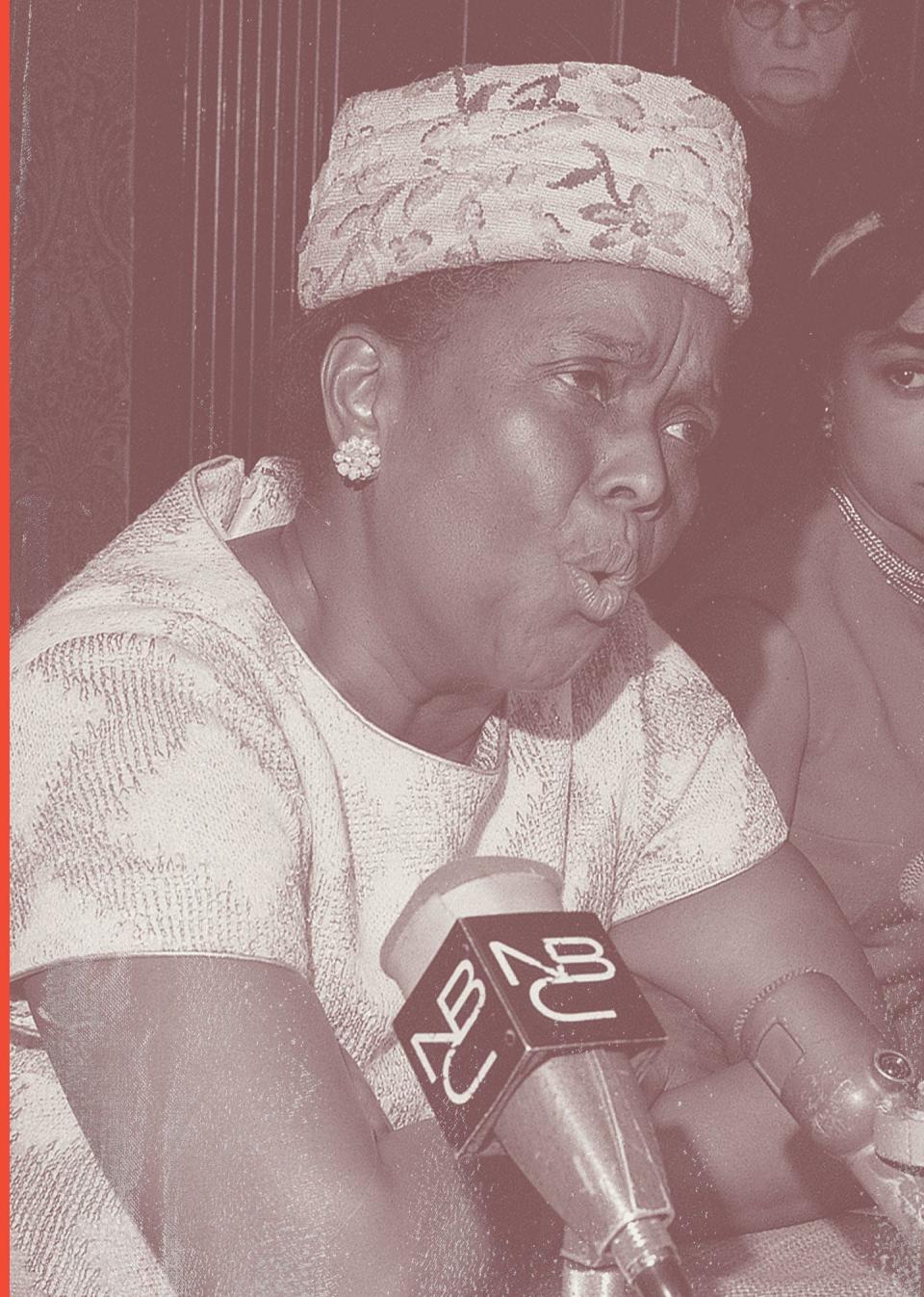
Ella Josephine Baker is perhaps not a household name. Yet she is among the top Black leaders of the 20th century and one of the civil rights movement's most influential women.
Baker was born in Virginia and grew up in North Carolina. After listening to her grandmother's stories about slavery, she developed a calling for social justice.
Baker attended Shaw University in Raleigh. After graduating at the top of her class in 1927, she headed to New York City and engaged in social activist organizations. In the 1940s, she traveled for the NAACP, then built its branches across the South. In the next decade, she would help Martin Luther King Jr.'s Southern Christian Leadership Conference. And after the 1960 Greensboro lunch counter sit-in, she shifted her work to the Student Nonviolent Coordinating Committee.
“The major job was getting people to understand that they had something within their power that they could use," Baker once said, "and it could only be used if they understood what was happening and how group action could counter violence."
Her civil rights work took a grassroots approach, and her efforts to promote equality also noted the sexism of the larger movement.
Shirley Caesar
Gospel singer
(1938- )
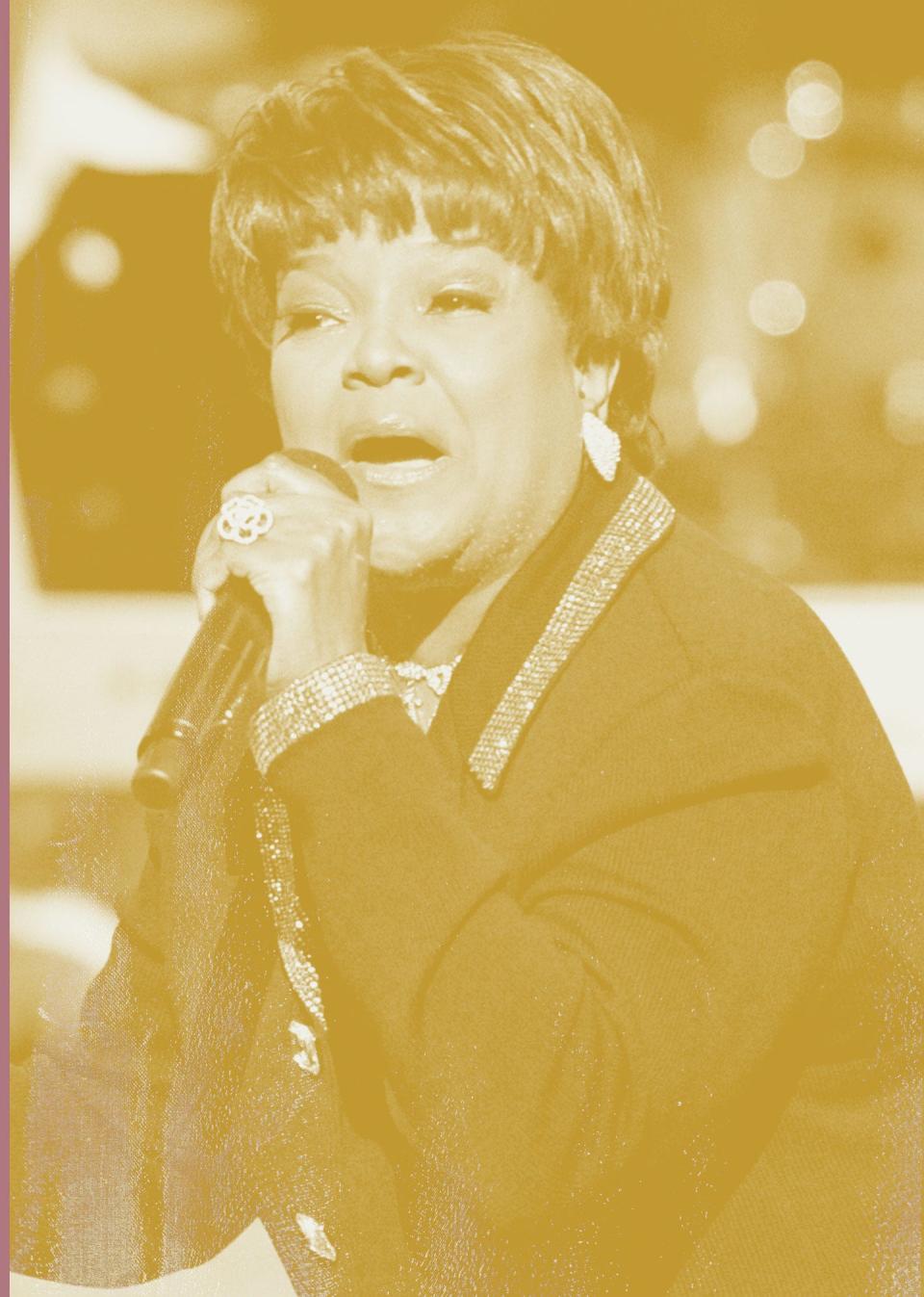
Gospel music comes naturally to Durham native Shirley Caesar. Her father, gospel singer "Big Jim" Caesar, shared his passion for music and drive for success.
She has been called “the first lady of gospel music” and “the queen of gospel music.” She began recording in 1951, on the Federal label, and performed with the Caravans, Albertina Walker, Dorothy Norwood, Inez Andrews, Delores Washington and James Cleveland before launching her solo career in 1966.
Since then, she has received 15 Dove Awards, 13 Stellar awards, 11 Grammys and, in 2017, a Grammy Lifetime Achievement award.
Amid her musical success, she founded Durham's Mount Calvary Word of Faith Church, as well as Shirley Caesar Outreach Ministries Inc.
Caesar began a college career, before dropping out to join the Caravans. She later earned a business degree from Shaw University, and has honorary doctorates from Shaw and Southeastern University.
She was inducted into the N.C. Music Hall of Fame in 2010. She has performed for presidents since Jimmy Carter, and has collaborated with artists including Patti LaBelle, Whitney Houston, Dottie People, Gladys Knight, Kim Burrell, John P. Kee, Tonex, Tramaine Hawkins, Kirk Franklin, Michelle Williams and Andrea Crouch.
Pam Grier
Actress
(1949- )
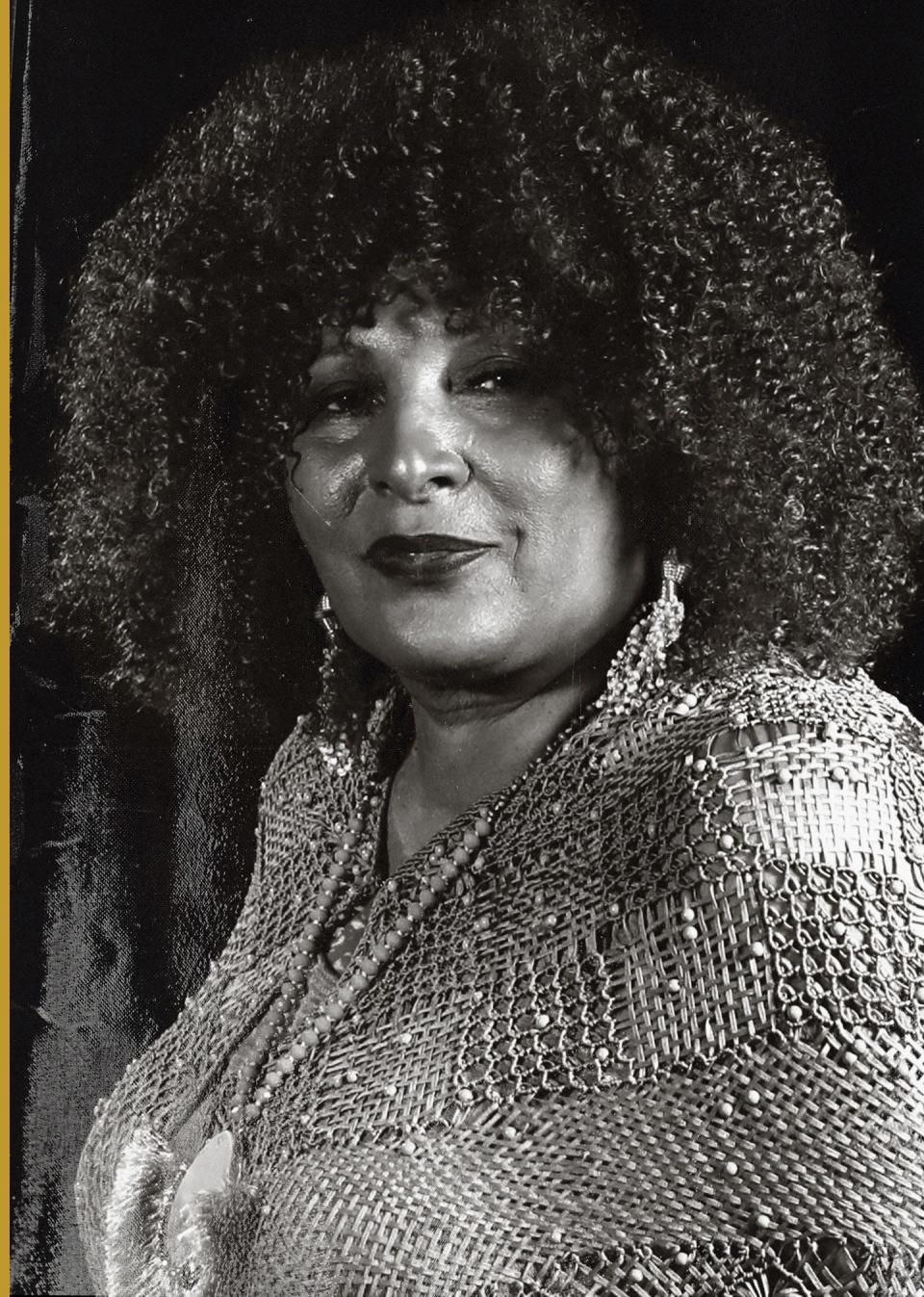
Pam Grier began her career on the big screen in 1970, achieved fame shortly thereafter with a string of starring roles in film, including as "Coffy" and "Foxy Brown." She became known as the queen of Blaxploitation films (those that exploit Black people, especially with regard to stereotyped roles).
Quentin Tarantino described her as cinema’s first female action star, and she starred in his 1997 film "Jackie Brown," for which she received a Satellite Award and a Golden Globe nomination for best actress.
Grier was born in Winston-Salem in 1949, but with a father in the military, she grew up on the move. Her family eventually settled in Denver. She set out for Los Angeles shortly after high school.
She went public with personal struggles in her 2010 memoir, "Foxy: My Life in Three Acts," in which she talks about being the victim of two sexual assaults, one of which happened when she was 6.
Her current role as a hardware store owner in rural Nebraska on the television show "Bless this Mess" closely mirrors her own home life in rural Colorado.
Kay Yow
Women’s basketball coach
(1942-2009)
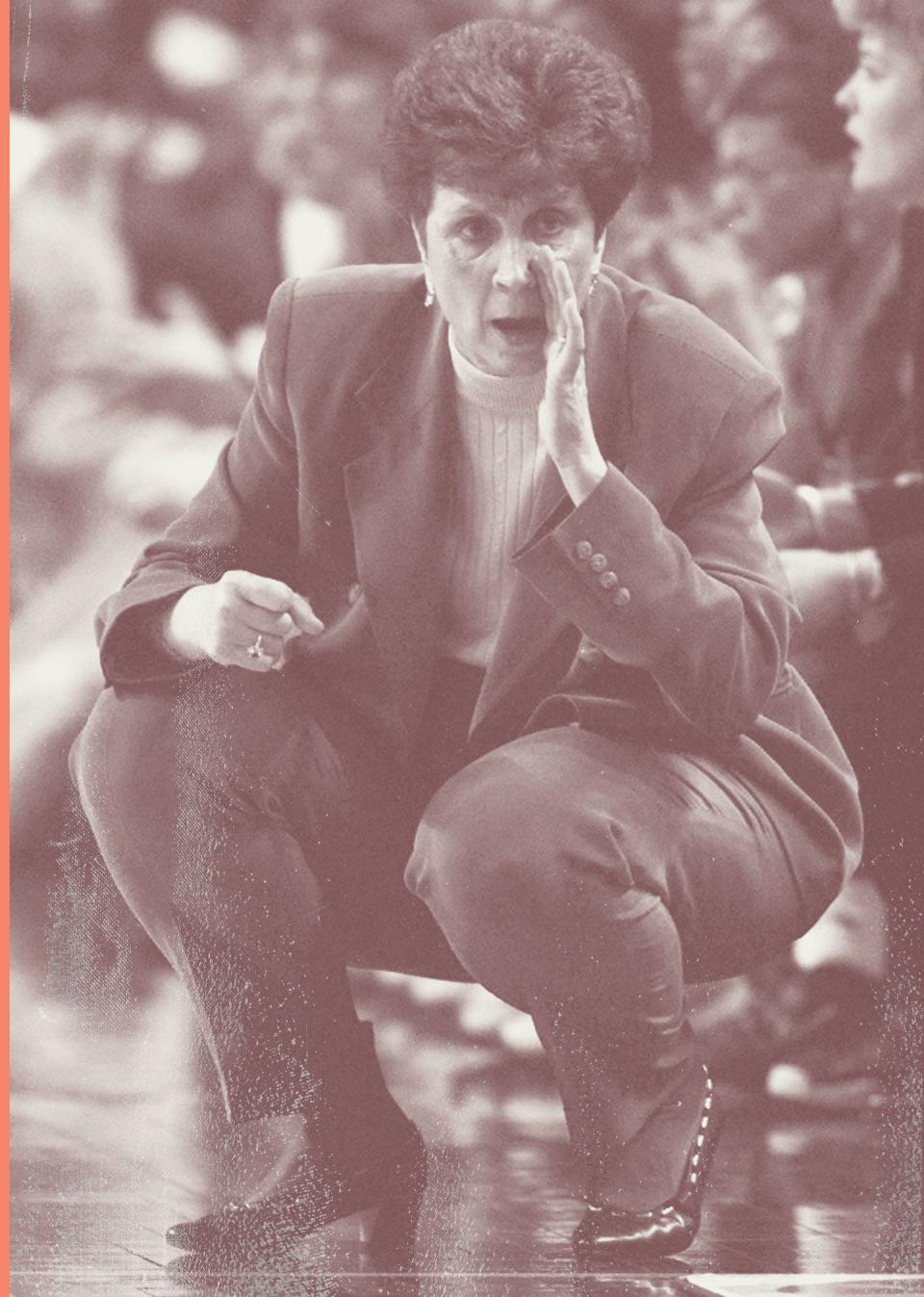
Sandra Kay Yow, a Gibsonville native, was an educator and storied women’s basketball coach for more than four decades. She began her career at the high school level, but was best known as the longtime head coach at N.C. State.
After four seasons at Elon University, she became the Wolfpack's first full-time coach, leading the program from 1975 through 2009. In all, she made 20 NCAA tournament appearances, including 11 trips to the Sweet Sixteen and the Final Four in 1998. At the time of her retirement, Yow was one of six Division I women’s basketball head coaches to record 700 career victories (737-344).
Yow is a past president and founding member of the Women’s Basketball Coaches Association. In 2002, she became the fifth woman to be inducted into the Naismith Memorial Basketball Hall of Fame for her impact on the sport. She was inducted into the Women's Basketball Hall of Fame in 2000. In 1988, only 10 months after she was diagnosed with breast cancer, she coached the U.S. Olympic team to a gold medal in Seoul, South Korea. She also led the U.S. to gold medals in the World University Games and the Goodwill Games in 1986.
Her most lasting legacy, however, might come off the court. She founded the Kay Yow Cancer Fund in 2007 to support women’s cancer research, and later that year was the first recipient of ESPN's Jimmy V ESPY Award for Perseverance. To this day, many basketball programs at the high school and collegiate levels choose a game on the schedule known as “Play4Kay,” as a fundraiser for the non-profit organization. She died of breast cancer at 66.
Gertrude Elion
Pioneering doctor
(1918-1999)
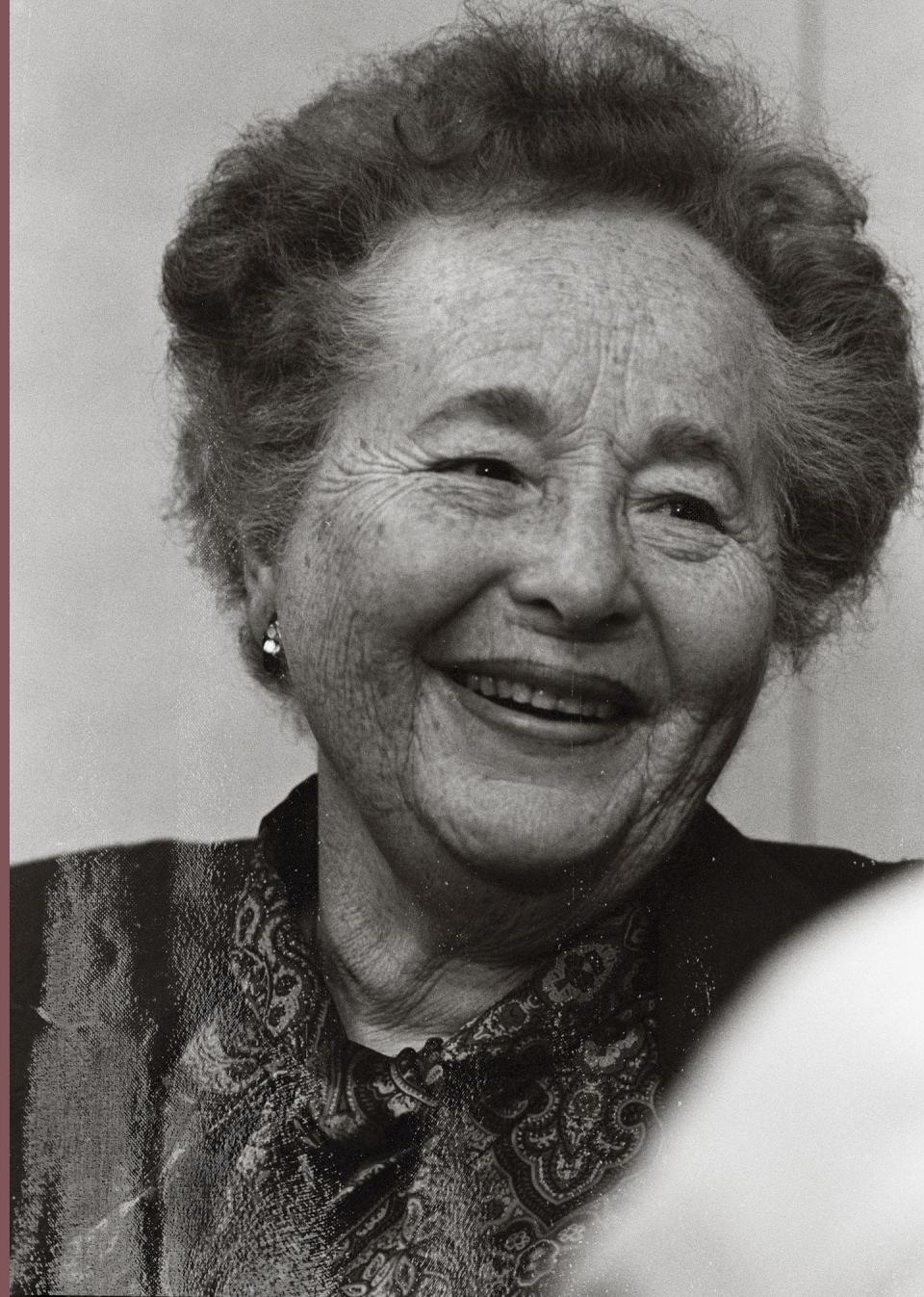
Gertrude “Trudy” Belle Elion was born in New York City to immigrant parents.
After watching her grandfather die of stomach cancer, Elion decided to pursue a career in science and medicine.
She attended Hunter College, followed by graduate school at New York University, earning a graduate degree in chemistry. Though she worked toward her Ph.D., she ultimately chose research over finishing those studies. Elion later received honorary doctorates from George Washington University, Brown University and the University of Michigan.
She worked with George Hitchings at Burroughs Wellcome (later Glaxo Wellcome and then Glaxo Smithkline). Her breakthroughs included treatment for malaria, the first drugs to prevent organ rejection for transplants, and the basic research that led to the breakthrough treatments for HIV. In 1988, she, along with Hitchings, was awarded the Nobel Prize in Physiology or Medicine.
She continued her work in Durham, where she later retired.
More coverage
Women of the Century: They didn’t succeed despite adversity, but often because of it
50 states: Learn about notable women from every state
Who is your Woman of the Century?: Let us know
Recognizing women past and present: See all of our coverage
Contributing: Jamie Biggs (Asheboro Courier-Tributine), Joey Chandler (Wilmington Star News), Michael Futch (Fayetteville Observer), Tom Jones (Burlington Times-News), Amanda McReynolds (Jacksonville Daily News), Sharon Myers (Lexington Dispatch), Diane Turbyfill (Shelby Star), Katie Wadington (Asheville Citizen Times, USA TODAY)Rebecca Walter (Hendersonville Times-News), Todd Weatherington (New Bern Sun Journal).
Special thanks to Dan Pierce, UNC Asheville history department; Rob Christensen, former reporter, Raleigh News & Observer; Kelly Eubank, director, Government and Heritage Library, State Library of North Carolina; and Jennifer Farley, West Region Supervisor, Division of State Historic Sites and Properties, NC Department of Natural and Cultural Resources.
Sources used in the Women of the Century list project include newspaper articles, state archives, historical websites, encyclopedias and other resources.
This article originally appeared on USA TODAY: Women of Century North Carolina list includes poet laureate, activists

